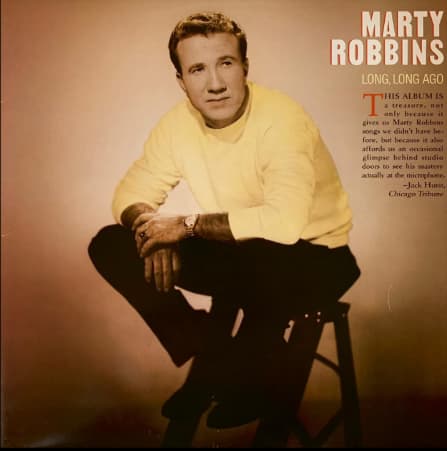
Marty Robbins – A Hundred And Sixty Acres: A Simple Ode to the Deep Roots of Home and Independence
Ah, the 1950s. What a time it was. The world seemed to be turning faster, yet the music still knew how to slow down and speak to the soul, particularly the older, wiser soul who remembers the grit and the glory of just getting by. And nobody, simply nobody, captured that spirit of the Western mythos and the heartfelt country life quite like Marty Robbins. His 1959 album, Gunfighter Ballads and Trail Songs, wasn’t just a record; it was a journey, a cinematic experience spun out in vinyl, and nestled right there among the sweeping narratives of “Big Iron” and “El Paso” lay a little gem, a quiet moment of profound contentment: “A Hundred And Sixty Acres.”
It’s crucial to understand where this track sits in the grand scheme. The album itself, Gunfighter Ballads and Trail Songs, was a colossal success, peaking at number six on the U.S. Pop albums chart and eventually going Platinum. While the album’s centerpiece, the self-penned epic “El Paso,” soared to number one on both the Hot Country Songs and Billboard Hot 100 charts (a rare crossover feat then and now!), songs like “A Hundred And Sixty Acres” were the sturdy, heart-of-the-matter foundations that gave the larger-than-life ballads their depth. This particular song wasn’t a charting single itself—it was a deep cut, track two on the original LP—but its inclusion speaks volumes about the complete picture Marty Robbins sought to paint of the Old West and the American spirit.
The track itself is a marvelous piece of brevity, clocking in at just under two minutes. It was written by David Kapp, and what a perfect fit it was for Robbins’ gentle tenor and that signature, understated arrangement. The story is a straightforward but powerful meditation on land ownership and self-sufficiency. It’s the simple, honest dream: not a kingdom, not a fortune, but a modest, viable slice of the earth—a homestead. A hundred and sixty acres was, of course, a common size for a homestead claim under the Homestead Acts, a figure etched into the American consciousness as the quintessential size of a family farm.
For those of us who grew up understanding the value of a hard day’s work and the security of having your own ground beneath your feet, this song evokes a powerful, nostalgic ache. Robbins sings of his “little bit o’ land” and having “just a plot of, not a lot of, land,” emphasizing that the true wealth is not in the size of the holding, but in the sense of belonging and independence it grants. There’s a beautiful line in the lyrics about having “a bunk where I can lay me down to rest.” It’s such an unpretentious expression of comfort; the man isn’t dreaming of a mansion, but a simple bed on his own property, a place to rest after a day spent laboring for himself and his family.
In a world that seems increasingly frantic and defined by material excess, “A Hundred And Sixty Acres” is a soothing tonic, a reminder of the timeless virtues of simplicity, humility, and the profound connection between a person and their home. It’s the musical equivalent of sitting on a porch at dusk, watching the shadows lengthen across a field you’ve tended yourself. When you listen to Marty Robbins sing this, you don’t just hear a country song; you hear the echo of generations, the quiet pride of the homesteader, and a deep, enduring American dream that remains utterly compelling, particularly to those of us who remember a time when the simple things were the most important. It’s a song about not being rich, but being truly wealthy in the things that matter—a place to call your own and the freedom that comes with it.